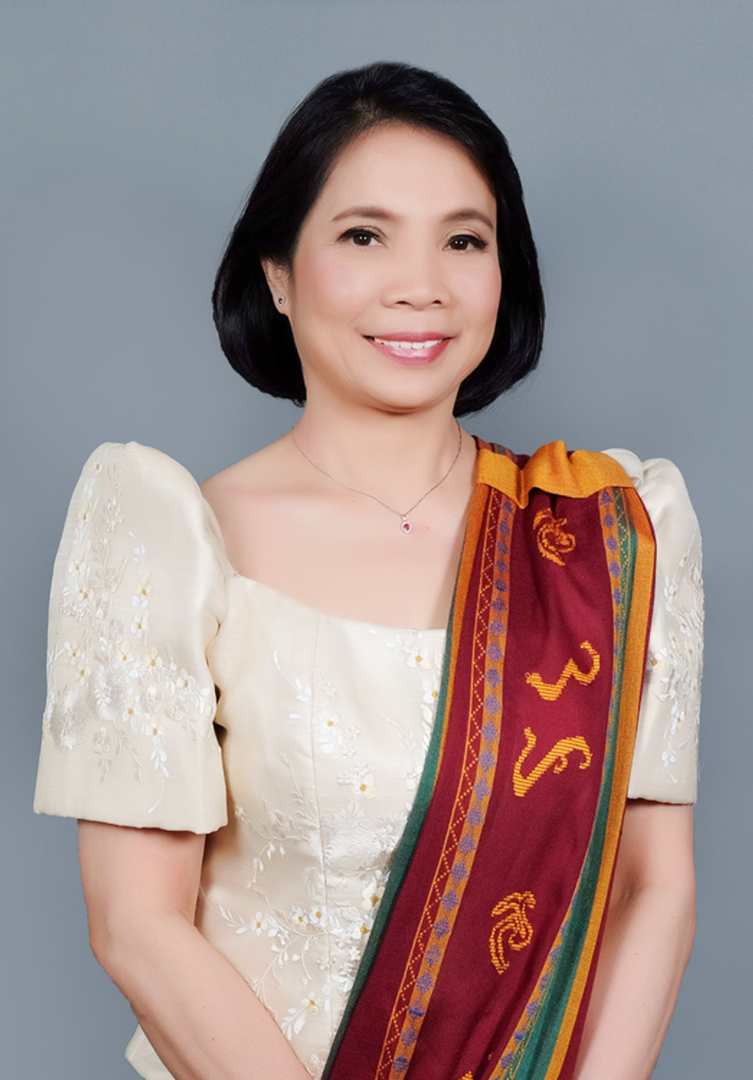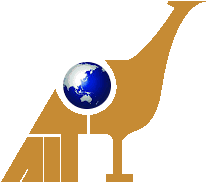
This material has been reproduced and communicated to you by or on behalf of University of the Philippines pursuant to PART IV: The Law on Copyright of Republic Act (RA) 8293 or the “Intellectual Property Code of the Philippines”. The University does not authorize you to reproduce or communicate this material. The Material may contain works that are subject to copyright protection under RA 8293. Any reproduction and/or communication of the material by you may be subject to copyright infringement and the copyright owners have the right to take legal action against such infringement.
| Solis, S. Maintaining a Competitive Advantage in the Tourism Industry: Emerging Patterns of Employment and Challenges for HRD. In Alampay, R. ed. (2005) Sustainable Tourism. Philippine Institute for Development Studies/ Philippine APEC Study Center Network (PIDS/PASCN) |
| Solis, S. Benchmarking Philippine Tourism Education with Tourism Education Quality (TEDQUAL) Standards in Macau, May 2008 (dissertation presented to the University of the Philippines College of Education for the degree of Ph.D in Education) [Graduate research] |
| Solis, S.L. (2013) Preparing Future Industry Leaders: A Framework for Philippine Tourism Education. International Journal of Business Tourism and Applied Sciences. 1(1) Jan- June 2013 pp. 37-46 |
| Rumbines, L.D.A. and Solis, S. L. “Guests’ Perception on the Integration of Disaster Risk Reduction and Management in Hotel Planning: The Case of Manila Bay Area Hotels” Tourism Educators Association of Malaysia, vol. 11 issue 1 Dec. 2014, pp. 17-26 |
| Ona, Jamaica and Solis, S.L. “Challenges and Opportunities for the Development and Promotion of Ibaloy Crafts as Tourism Products” International Journal of Culture, Tourism and Hospitality Research” 2017 volume 11 issue 4, pp. 593-607 (Scopus indexed) |
| Leticia Susan L. Solis, "A Proposed Framework For Institutional Risk Management For Philippine Tourism Accommodation Establishments", International Journal of Advanced Research and Publications (IJARP), http://www.ijarp.org/online-papers-publishing/dec2019.html, Volume 3 - Issue 12, December 2019 Edition, 66-72 #ijarporg |
| Solis, S.L. (2021). Disaster Risk Reduction and Management (DRRM) in Tourism and the Attainment of the Sustainable Development Goals. European Modern Studies Journal 5(6), pp. 490-502 |
| Solis, S.L, “Designing a Curriculum for Sustainable Tourism Development [paper presented in a conference of the International Council of Hotels, Restaurants and Institutional Education- ICHRIE), Las Vegas, Nevada, Jan 2003] [Research Presentation] |
| Solis, S.L. “ Maintaining a Competitive Advantage in the Hotel Industry: Emerging Patterns of Employment and Challenges for HRD” (paper presented in the 8th International Industrial Relations Association IIRA Regional Conference, Seoul, Korea, July, 2004) [Research Presentation] |
| Solis, S. L. “Preparing Future Industry Leaders: A Framework for Philippine Tourism Education” [paper presented in the International Conference on Tourism Transport and Logistics (ICTTL), Paris, France Feb. 14-16, 2013] [Research Presentation] |
| Rumbines, L. and Solis, S. L. “Guests’ Perception on the Integration of Disaster Risk Reduction and Management in Hotel Planning: The Case of Manila Bay Area Hotels, [paper presented in the 12th Asia Pacific Council on Hotel. Restaurant and Institutional Education (ApacCHRIE) Kuala Lumpur, Malaysia, May 20-21, 2014] [Research Presentation] |
| Solis, S.L. “Disaster Risk Reduction and Management in Tourism Accommodation Establishments in the Philippines: An Exploratory Study” [paper presented in the Bali Tourism Forum International (First World Destination Management Outlook), Bali, Indonesia, Nov. 25-27, 2015) [Research Presentation] |
| Garcia, H., Gonzales, A. and Solis, S. “A Correlational Analysis of Personality, Travel Personality and Travel Destination Preference” [paper presented in the Philippine Research Conference on Tourism and Hospitality (conference organized by the U.P AIT and U.P. Dept of HRIM) Richmonde Eastwood, Metro Manila, October 2017] [Research Presentation] |
| Solis, S.L. “A Proposed Framework for Institutional Risk Management for Philippine Tourism Accommodation Establishments” [paper presented in the Philippine Research Conference on Tourism and Hospitality (conference organized by the U.P AIT and U.P. Dept of HRIM) Holiday Inn, Baguio, October 2018] [Research Presentation] |
Lorem Ipsum is simply dummy text of the printing and typesetting industry. Lorem Ipsum has been the industry's standard dummy text ever since the 1500s, when an unknown printer took a galley of type and scrambled it to make a type specimen book. It has survived not only five centuries, but also the leap into electronic typesetting, remaining essentially unchanged. It was popularised in the 1960s with the release of Letraset sheets containing Lorem Ipsum passages, and more recently with desktop publishing software like Aldus PageMaker including versions of Lorem Ipsum.
Lorem Ipsum is simply dummy text of the printing and typesetting industry. Lorem Ipsum has been the industry's standard dummy text ever since the 1500s, when an unknown printer took a galley of type and scrambled it to make a type specimen book. It has survived not only five centuries, but also the leap into electronic typesetting, remaining essentially unchanged. It was popularised in the 1960s with the release of Letraset sheets containing Lorem Ipsum passages, and more recently with desktop publishing software like Aldus PageMaker including versions of Lorem Ipsum.
Lorem Ipsum is simply dummy text of the printing and typesetting industry. Lorem Ipsum has been the industry's standard dummy text ever since the 1500s, when an unknown printer took a galley of type and scrambled it to make a type specimen book. It has survived not only five centuries, but also the leap into electronic typesetting, remaining essentially unchanged. It was popularised in the 1960s with the release of Letraset sheets containing Lorem Ipsum passages, and more recently with desktop publishing software like Aldus PageMaker including versions of Lorem Ipsum.
Frequently Asked Questions
Have a question in mind? We listed down some of the Frequently Asked Questions to help and guide you. If you have further questions not covered in this FAQ, please send us an inquiry through daa.ait@up.edu.ph
FAQS
How to apply in the BS Tourism Program?
To be eligible in the BS Tourism Program, you need to pass the UP College Admission (UPCA)/UP College Admission Test UPCAT).
For students who are planning to shift or transfer to the BS Tourism program, you must have completed 30 units of coursework (if you are from other UPD units or other UP campus) or 33 units of coursework (if you are from other college and university)
The documentary requirements can be found here.
For more information and other queries, send an email with your concern to asianinstituteoftourism.upd@up.edu.ph
Are there scholarship offerings for UPAIT students? The graduate program of UPAIT offers the MSTDM scholarship award, with one awardee annually. For other scholarship opportunities for BS Tourism and Graduate Program, visit the UP Diliman Office of Scholarships and Grants Facebook Page: https://www.facebook.com/UPDilimanOSG
The UP AIT Alumni Association also offers an educational assistance in cash to deserving third and fourth year students.
The application process is conducted online. Please ensure that you have read and understood the program details before submitting your application here. Once you have completed the application requirements, you can now proceed to submit your application.
For questions or concerns, please contact the Graduate Program office at aitgradprog.upd@up.edu.phFull-time GDipTDM students, taking a normal load, may complete the degree in three semesters (approximately 1.5 years). The time limit for the completion of all diploma requirements shall be no more than two (2) years starting from the student’s first enrollment in the course and shall include all leaves of absence from the program.
If GDipTDM graduates choose to continue to MSTDM, you must complete an additional 19 units (Plan A, thesis track) or 16 units (Plan B, non-thesis track), which may be taken in two semesters and one mid-year term. The time limit for the completion of the Master’s requirements shall be three (3) years, starting from the student’s first enrollment in the course and shall include all leaves of absence from the program.
Students and prospective applicants are requested to search for available grants or scholarships at the University of the Philippines Office of Scholarships and Student Services.
For list of available scholarships visit the website of the University of the Philippines Office of Student Scholarships.
Contact Us
Get in touch
Please ensure to schedule and coordinate your visit in advance before proceeding to our campus.
Location:
UP Asian Institute of Tourism, Commonwealth Avenue, Diliman, Quezon City 1101
Email:
asianinstituteoftourism.upd@up.edu.ph
Call:
(+63 2) 8 981 8500 extension #2798
AIT Directory:
Visit here

